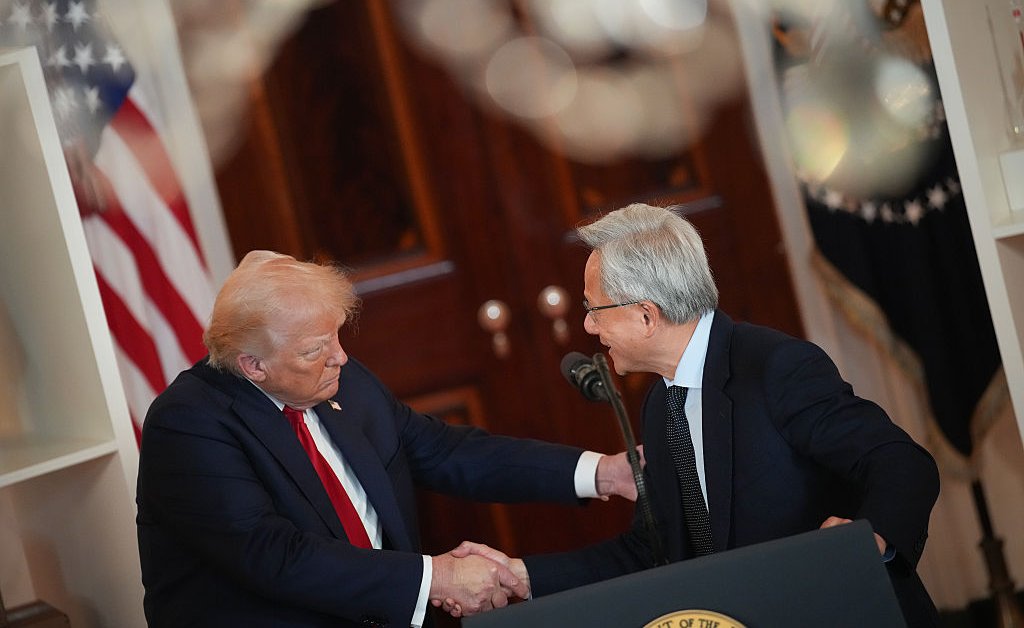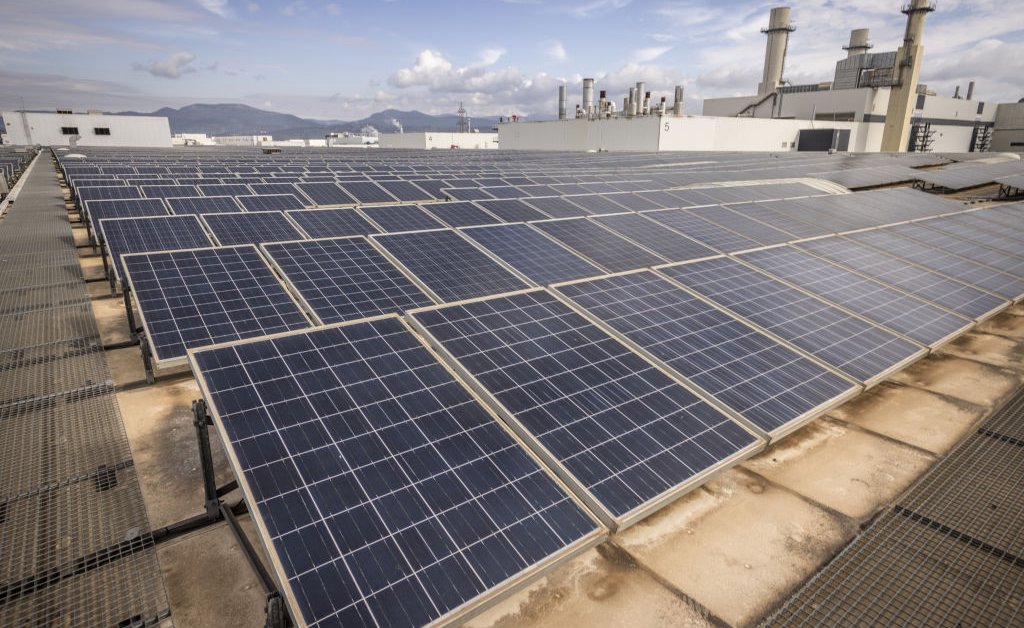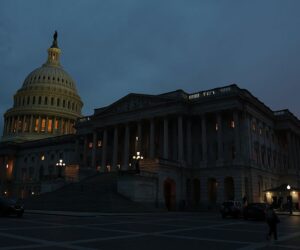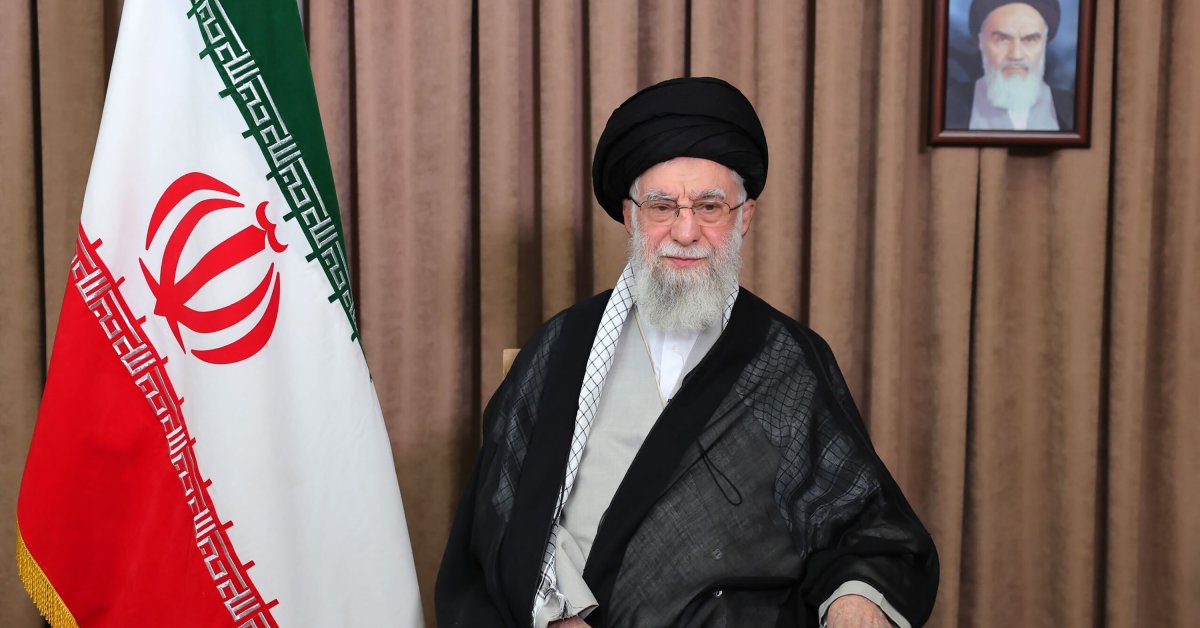The world’s most valuable company is now at the center of President Donald Trump’s trade war with China.
Trump said Monday that he has cut a deal with chipmaker Nvidia, allowing it to sell certain artificial intelligence chips to China in exchange for a cut of the revenue, which would go to the U.S. government. Trump said he also negotiated a similar deal with chipmaker Advanced Micro Devices (AMD).
The deal is a marked departure from an effort by the U.S. to restrict China’s access to advanced semiconductors over concerns that they would be used to advance the country’s military technology. Washington began restricting exports of some semiconductors to China in 2022, although Nvidia was able to export a specially made-for-China chip, the H20, which is deliberately slowed down.
In April, the Trump Administration announced that it would require a license to export the H20 chip, abruptly curbing the shipment of $2.5 billion of H20 revenue from China in the fiscal quarter ending April 27. The announcement spurred months of lobbying by Nvidia CEO Jensen Huang, who committed a $500 billion investment from Nvidia to make AI servers in the U.S. Last month, Nvidia announced that it would resume sales of the H20 to China after Trump and Huang met in the Oval Office, and the Commerce Department began licensing the chips for export last week.
But the unusual deal is not just a return to the previous status quo—rather, analysts and lawmakers warn that it could open the doors to a “pay-to-play” trade policy. Here’s what to know.
What the deal means for Nvidia
The deal, which was first reported by the Financial Times, involves allowing exports of certain AI processors to China in exchange for Nvidia and AMD paying 15% of the proceeds to the U.S. government.
“I said, ‘Listen, I want 20% if I’m going to approve this for you,’” Trump said at a White House press conference on Monday, adding that Huang negotiated that number down to 15%. “For our country, for the U.S., I don’t want it myself,” Trump clarified about the kickback.
Trump said the deal was limited to Nvidia’s H20 chips, which he said are “essentially old,” and a similarly slowed down MI308 chip for AMD, but he indicated that a similar deal may be in the works for more advanced chips.
“The Blackwell is super-duper advanced. I wouldn’t make a deal with that,” Trump said, referring to Nvidia’s most advanced chip for AI. “Although, it’s possible I’d make a deal on a somewhat enhanced in a negative way Blackwell. In other words, take 30% to 50% off of it, but that’s the latest and the greatest in the world. Nobody has it. They won’t have it for five years.”
Nvidia said in a statement to media outlets, “We follow rules the U.S. government sets for our participation in worldwide markets.” It added, “While we haven’t shipped H20 to China for months, we hope export control rules will let America compete in China and worldwide.”
China urges firms not to use the less-advanced chips
The Chinese government has reportedly discouraged local firms from using Nvidia’s H20 chips. The guidance did not outright ban use of the chips, but it said that they should not be used in particular for national security-related work.
Some Chinese companies have reportedly made plans to reduce their orders of Nvidia chips after the government asked firms to justify why they buy Nvidia H20 chips over domestic chips, such as those by Chinese firm Huawei, which the U.S. has imposed strict export controls on. But analysts have said that the American chips, even in their slowed down form, are world-class and will continue to be sought after by companies. Although Trump characterized Nvidia’s H20 chips as “obsolete” and said that China “already has it in a different form,” he also noted it “still has a market.”
Beijing in July raised security concerns with Nvidia, while Chinese state media reports in recent weeks have also highlighted these concerns.
“The H20 is not a military product or for government infrastructure,” Nvidia told Bloomberg.
Nvidia export controls have also been used as a “negotiating chip” in U.S.-China trade talks, Treasury Secretary Scott Bessent said in July. The deadline for the U.S. and China to reach a trade deal was Aug. 12, but the two countries extended their truce by 90 days in order to continue negotiations.
Should Chinese firms purchase fewer chips from Nvidia, Trump’s much-touted deal—and any further attempts to use chips as a bargaining chip—may hold less weight.
Deal raises legal concerns
Nvidia’s H20 chips are believed to have been used in developing Chinese company DeepSeek’s open-source AI model, which caused a panic in the U.S. over whether China’s AI technology was more advanced than previously believed. It prompted former President Joe Biden to further curb exports of AI chips to China, before the Trump Administration placed an effective ban on the H20 exports in April.
The loosening of those restrictions for essentially a sales commission arrangement has drawn criticism over both national security risks and legality concerns.
The White House said the details of the deal are still being worked out.
“The legality of it, the mechanics of it, is still being ironed out by the Department of Commerce, and I would defer you to them for any further details on how it will actually be implemented,” White House Press Secretary Karoline Leavitt said Tuesday, adding that the deal could be expanded to include other companies.
“I am concerned by reports that the U.S. government will be taking a cut of the proceeds from the sale of advanced H20 and equivalent chips to China,” Rep. John Moolenaar (R, Mich.), the head of the House Select Committee on the Chinese Communist Party, told the Financial Times.
“By putting a price on our security concerns, we signal to China and our allies that American national security principles are negotiable for the right fee,” said Rep. Raja Krishnamoorthi (D, Ill.), the ranking member of the House select committee on the CCP.
Bernstein analyst Stacy Rasgon said the deal sets a bad “precedent” for other companies. Rasgon told Bloomberg on Monday that the 15% cut in order to sell to China for the chipmakers makes financial sense for the companies and is better for the U.S. in order not to lose its competitive edge in the Chinese market but also that “it feels like a very slippery slope.”“It raises concerns, certainly for many national security minded folks, of—are we now selling export control licenses?” Owen Tedford, a senior research analyst at Beacon Policy Advisors, told the Hill. “Is there a way that Nvidia will be able to buy licenses to sell more advanced chips than they’re currently able to?”
“It raises questions about how—and I think this gets to some of more general concerns with the Trump Administration—just, policy feels like it’s for sale in some ways, like policy outcomes,” Tedford added. “If companies are big enough or strong enough, they can basically buy the policy that they want from the Trump Administration.”








